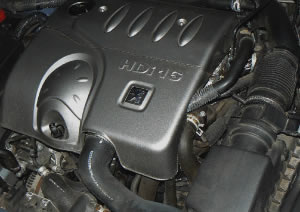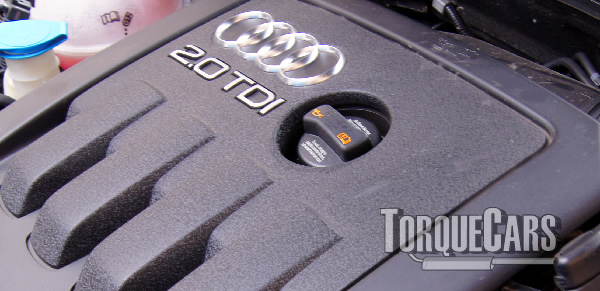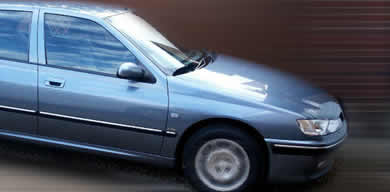Diesel tuning for mpg, power and torque
"The dark art of Diesels"
 Diesel engines have really come a long way.
Diesel engines have really come a long way.
The sheer efficiency and Torque you get on a modern diesel engine has turned many petrol heads over to Diesel.
The only diesels worth tuning are turbocharged, the NASP engines are still quite unrefined and offer little of a gain even from a substantial spend.
Also it's not worth tuning a diesel unless it is using an electronically managed direct injection fuel system. Thankfully most modern Turbo diesel engines will respond quite well to tuning
From about the year 2000 Diesel engine tuning started to get very interesting.Take a 2.2 litre HDI turbo diesel engine with 136bhp and 235lbft of torque then remap it. You'll see power hiked to 192bhp and torque lifted to 329lbft (sports car torque figures.) A 140bhp VAG group diesel will generally see power raised to around 180bhp from a remap alone and 170bhp models will peak over 200bhp.
Bear in mind that the diesel engine has a narrow rev range so on paper the acceleration is not stunning. When driving these cars the sheer amount of torque on offer makes a world of difference and in real world usage these cars feel very rapid indeed.
Overtaking becomes effortless and country drives become a pleasure thorough a simple reprogram of the ECU. Most modern diesel engines will produce better MPG figures after a remap as well as massive power hikes.This is not something you'll see on a petrol engine.
The nice flat torque curve makes a massive difference to the drive, peak power figures and 0-60 charts tell very little about the real world driving experience. After a remap you'll notice that in gear acceleration is phenomenal - 50 to 70 in FOURTH in about 2.5 seconds!! 70 to 90 in fifth in under 6!!!
The pro's of the modern Diesel over a petrol engine.
- Much better fuel economy (than the equivalent powered petrol)
- Lots more mid range torque and power
- Get a lot more power and greater economy gains from a remap
The cons of the modern Diesel against a petrol one.
- Slightly more expensive servicing than a petrol car (in some cases, but intervals are generally longer).
- Slightly more noisy engine than a petrol and a little less refined
- Sooty/Smelly exhaust fumes especially under full acceleration.
- Very narrow power band and limited rev range
- Engines are heavier so handling is generally not quite as good.
Diesel is clearly the sensible and fun choice if you want power and economy. BMW and Jaguar have recently introduced some very impressive diesel engines. With the current rate of innovations petrol engines could become reduntant.
Some assert cynically that manufacturers modestly undertune the current crop of performance diesels in order to create a place in the market for their petrol powered models. It has also been claimed that the official performance figures are rounded down on Diesel engines with most drivers meeting or exceeding them.
 Induction kits and exhausts should theoretically offer a slight increase in power as you still require an efficient delivery of lots of cold air and a way to expel them as efficiently as possible. In reality though diesels do not pull much air as they run at lower RPM levels than petrol so you are unlikely to see any gains from these mods.
Induction kits and exhausts should theoretically offer a slight increase in power as you still require an efficient delivery of lots of cold air and a way to expel them as efficiently as possible. In reality though diesels do not pull much air as they run at lower RPM levels than petrol so you are unlikely to see any gains from these mods.
The exhaust bore size on Diesels are typically much larger than a similar powered petrol cars - especially on Turbo Diesel models. So gains from larger exhausts are minimal. But removing the particulate filters and catalysts usually gives a good boost in power (where legal of course).
As for internal mods for sophisticated diesel engines, typically the rewards obey the law of diminishing returns. With forced induction there's only so far you can go with cam/valve lift and air (gas) flow. Especially with a diesel engine, given the limited rev range there's not that much reward from tuning a head in the traditional way. Diesel burns very slowly (hence the 4000rpm peak BHP most achieve, even if they will spin to over 5000rpm).
Getting the flame front inside the combustion chamber to accelerate faster than the piston crown is the only real option, and this is to some degree achieved by allow small amount of fuel to be injected during the expansion phase of the engine's cycle.Too much of this and you get smoke and soot, and burn a load of fuel.
Increasing the BMEP (brake mean effective pressure) by means such as increased boost can assist. This, too, is a double edged sword as the biggest fraction of the atmosphere is nitrogen, which, although good for cooling, is still incombustible.
Larger turbos will help raise the capacity of the engine, many manufacturers fit a smaller turbo to lower power diesels. Fitting the big brothers turbo is a good cheap upgrade and when combined with a remap gives massive returns. Fuel delivery will often need to be addressed as well where big power gains are required.
 Increasing the cetane rating of diesel fuel is quite effective in increasing the release of 'free' power and there are many additives around which can do this for you.
Increasing the cetane rating of diesel fuel is quite effective in increasing the release of 'free' power and there are many additives around which can do this for you.
With a diesel engine, the key is getting the fuel to burn more rapidly, as opposed to a petrol engine where octane number is God.
Pre warming the fuel and direct injection into the combustion chamber all help to improve the speed and efficiency of combustion with innovations arriving on a monthly basis.
You'll see brilliant results on most modern diesel engines with cetane improvers. Sadly, these can prove expensive and should not be used in engines that are Euro Iv (2004) compliant. The particle filter (particulate, or DPF) can become blocked or excessively obstructed by use of such products and in regular short journey use.
Cars with DPF, or particulate filters require heavy driving and lots of heat to burn off the particles or they become clogged. There are additives around which are quite effective at cleaning these but don't use them when it's too late.
Weight reduction is very very sensible in any tuning project.Less weight means better performance for free, it also puts less load on tyres, and brakes which allows sharper braking and handling. It also reduces the load on the environment as less fuel is required, thereby the release of exhaust gases is reduced.
Clutches in modern diesels are getting on for 12" diameter and require fluid operation and servo assistance to make the things pleasant to drive, often a standard clutch will suffer from slip when a remap yields a massive torque figure so you may need to uprate the clutch. Don't be tempted to replace the DMF with a lighter solid one, a modern diesel needs all the help it can get to run smoothly. Besides this there is little performance gain to be had from a lighter DMF.
We now have a dedicated diesel forum where you will meet our resident diesel enthusiasts and discuss tuning options for your car. Our admin and owner Waynne has just bought a diesel and is quite impressed with what you can do with them tuning wise.
Please Check out my YouTube channel, we're regularly adding new content...
PLEASE HELP: I NEED YOUR DONATIONS TO COVER THE COSTS OF RUNNING THIS SITE AND KEEP IT RUNNING. I do not charge you to access this website and it saves most TorqueCars readers $100's each year - but we are NON PROFIT and not even covering our costs. To keep us running PLEASE Donate here
If you liked this page please share it with your friends, drop a link to it in your favourite forum or use the bookmarking options to save it to your social media profile.
Feedback - What do You Think?
Please use our forums if you wish to ask a tuning question, and please note we do not sell parts or services, we are just an online magazine.
Help us improve, leave a suggestion or tip
Please watch this video and subscribe to my YouTube channel.

 Click to accept YouTube Cookies & Play.
Click to accept YouTube Cookies & Play.